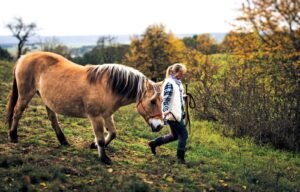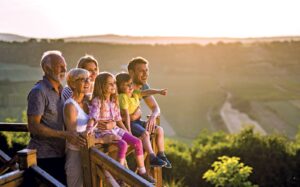Hope and Resilience versus Safetyism
Recently, I was introduced to a new concept that caught my attention as I’ve been watching society around me react to the “new normal.” The construct is called “safetyism.” Much like many ‘isms’, it embodies a frame of thought that fuels anxiety and fear. Safety is generally thought to bring goodness and health, but in an extreme form, safety becomes safetyism. The concept was initially defined by Lukianoff and Haidt in 2018 in their book entitled The Coddling of the American Mind. They define safetyism as a culture or belief system in which safety has become a sacred value, which means that people become unwilling to make trade-offs demanded by other practical and moral concerns. “Safety” trumps everything else, no matter how unlikely or trivial the potential danger. Safetyism is therefore the antithesis of health — it causes fear, and worse, defeat.
Those exhibiting this belief feel the world is so unsafe that the only recourse is to take extreme measures, such as closing themselves off from the world. Other examples include minimizing or foregoing activities they used to participate in prior to COVID-19 out of fear of contracting the virus. People need self-defining activities for self-esteem and value, such as attending social functions, exercise, gardening, going to parks, having lunch with a friend, or shopping at the mall.
As a behavioral health clinician and a public health professional, my first goal is to help people become more resilient in whatever crisis or unexpected life event they may be facing. In this vein, it’s paramount to help people identify what previous resiliency factors have helped them build self-efficacy and a belief in their own ability to accomplish the specific tasks needed to reach previous goals. Everyone has met a goal or overcome a challenge that he thought unconquerable. Unfortunately, people sometimes forget how truly resilient they have been. A significant role of behavioral health professionals is to remind a person how much of an overcomer he truly is by using his own lived history as examples.
So, one may ask, what does resiliency look like in the face of this new stressor, COVID-19? First, it’s essential to use good critical thinking skills. Critical thinking is the analysis of an issue or situation and the facts, data, or evidence related to it. Ideally, critical thinking is to be done objectively — without influence from personal feelings, opinions, or biases — and it focuses solely on factual information.
Secondly, be cautious of the information you choose to subject yourself to. We live in a day of information from many sources. Many of them may be sharing only a partial explanation of what’s occurring in the world. Consequently, pieces of information from multiple sources without clarity may cause anxiety, since it may feel as though you are caught in a maze of events that are difficult to fit together. As Dr. Lee Ann Hoff has suggested when studying people in a crisis, “when people feel anguish over events, the resulting confusion can alter a person’s ability to make decisions and solve problems, the very skill needed during acute anxiety states.” In other words, rely upon sources that are considered experts versus sources that, in an effort to offer safety, may in reality be encouraging safetyism. Reliable sources would be considered the Centers for Disease Control and Prevention (CDC.gov), the World Health Organization (WHO.int), and more locally, the South Carolina Department of Health and Environmental Control (SCDHEC.gov). These sources offer reliable data and steps to support a healthy lifestyle.
Thirdly, don’t avoid the stressor (COVID-19), or worse, isolate yourself. Being resilient means dealing with a crisis or stressor in an emotionally and physically healthy way; it’s manifesting an effective coping style. Follow the federal, state, and local guidance suggested to protect yourself, but also choose to live your life to the fullest extent possible. In contrast, it’s unfortunate that there are those who choose to isolate themselves from friends, family, and society in hopes that tomorrow will be better. Why not start living for tomorrow TODAY and doing the social activities that are important to you? Follow the local protocols recommended by the experts, but also pursue what the American Psychological Association (APA) describes as resilience: adapting well in the face of adversity, trauma, tragedy, threats, or significant sources of stress, such as family and relationship problems, serious health problems, or workplace and financial stressors.
Fourth, live in the moment. Choose to live in today and focus your energy on what you can accomplish with any new limitations you might be experiencing. One easy, but not simple, way of living in the moment is to develop the discipline of mindfulness. The APA defines mindfulness as “… a moment-to-moment awareness of one’s experience without judgment. In this sense, mindfulness is a state and not a trait.”
It’s true that our new reality caused by COVID-19 may have limitations. In fact, nearly every part of our existence has been impacted by the pandemic. Denying that we have been significantly impacted would not be healthy. Being resilient, though, means facing head-on whatever life may throw at you, and using critical thinking, relying on the wisdom of information from the experts, staying socially active, and living in the moment. You have the ability to choose wellness and life — choose resilience, not safetyism.






